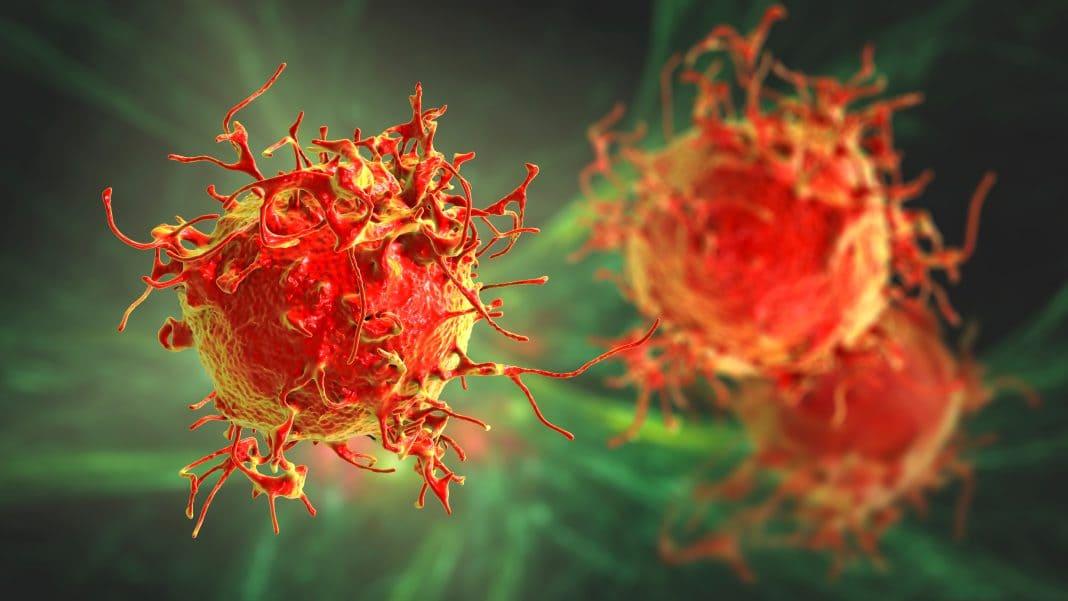KEY TAKEAWAYS
- The monarchE phase III trial aimed to assess pre-treatment ctDNA detection feasibility and track ctDNA persistence/clearance in EBC patients from monarchE using SignateraTM.
- The reported outcome suggested that early ctDNA detection predicts high recurrence risk, but decreasing levels during treatment showed promise and may indicate long-term benefit.
In the monarchE trial (NCT03155997), two years of adjuvant abemaciclib plus endocrine therapy demonstrated significant and clinically meaningful improvements in invasive disease-free survival (IDFS) and distant relapse-free survival (DRFS) for patients with HR+, HER2-, node-positive, high-risk early breast cancer (EBC). Notably, the benefits of abemaciclib were sustained post-treatment, and the magnitude of improvement deepened at the 4-year mark for both IDFS and DRFS.
Sherene Loi and her research team spearheaded the study that aimed to assess the technical feasibility and dynamics of ctDNA detection pre- and during abemaciclib + ET treatment in high-risk HR+, HER2- EBC patients from monarchE.
In a subset of patients (n=178) from the monarchE trial, comprising 84 from the abemaciclib+ET arm and 94 from the ET-alone arm, blood samples were collected at two key time points: before initiating protocol-directed therapy (Visit 1; randomization + ≤ 3 days) and near the completion of the 2-year treatment period (Visit 27; 24 months +/- 5 days from Visit 1).
This subset was enriched for overall IDFS events, excluding patients with relapses before Visit 27. Primary tumors underwent whole exome sequencing (WES), and up to 16 variants were identified. Cell-free DNA was extracted from 356 plasma samples, and a SignateraTM ctDNA assay was developed for each patient based on the identified variants from the baseline tumor sample.
Within the selected subset of 178 patients, the IDFS event rate was 39.3% % (abemaciclib+ET 34.5% [29/84] and ET alone 43.6% [41/94]). Initially, 5.6% (10 patients) were ctDNA+, and at Visit 27, 23.6% (42 patients) were either persistently (3.9%, 7 pts) or became (19.7%, 35 pts) ctDNA+.
Notably, 70% of initially ctDNA+ and 100% of persistently or newly ctDNA+ patients experienced recurrence. In contrast, none of the 3 patients who cleared ctDNA+ developed recurrence. Among persistently ctDNA-negative patients, 21.1% (28) experienced recurrence, although they had the longest median IDFS (41.7 months). Overall, 10% (7/70) of patients with IDFS events were initially ctDNA+, and 50% (35/70) had detectable ctDNA at Visit 27.
The study found that detecting ctDNA post-neoadjuvant chemotherapy is rare but linked to high recurrence risk. At the 2-year treatment end, common ctDNA positivity strongly predicts recurrence. Notably, around 30% with early ctDNA detection dropped below limits, none was recurring.
Despite persistently ctDNA-negative cases experiencing recurrence, the delay suggested potential benefits. Future analyses in a larger cohort will explore ctDNA dynamics for identifying high-risk recurrence. The study is sponsored by Eli Lilly and Company
Source: https://atgproductions.net/atgclients/sabcs/2023_SABCS_Abstract_Report-12-1-23_Compressed.pdf
Clinical Trial: https://clinicaltrials.gov/study/NCT03155997
Loi S, Graff S, Johnston S, et al. (2023) ’’Results from a pilot study exploring ctDNA detection using a tumor-informed assay in the monarchE trial of adjuvant abemaciclib with endocrine therapy in HR+, HER2-, nodepositive, high-risk early breast cancer.’’ Presented at SABCS 2023, Henry B. Gonzalez Convention Center San Antonio, Texas ( PS06-01)



